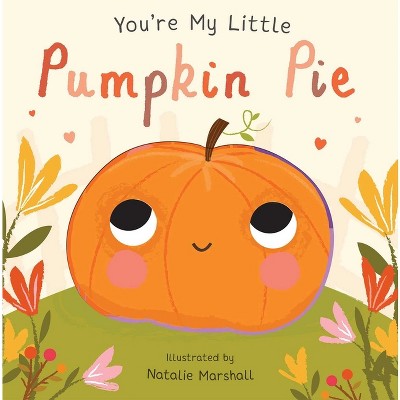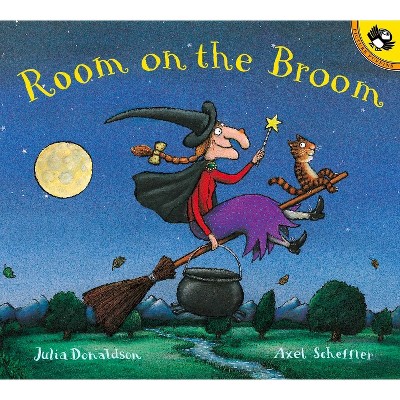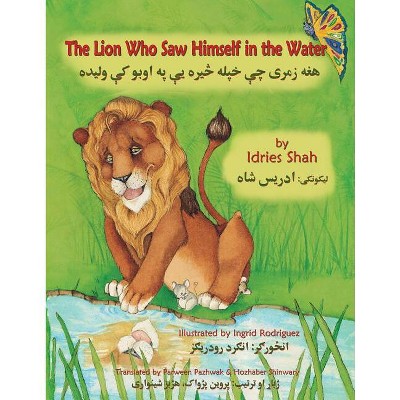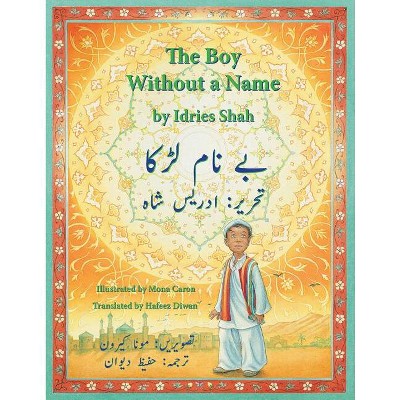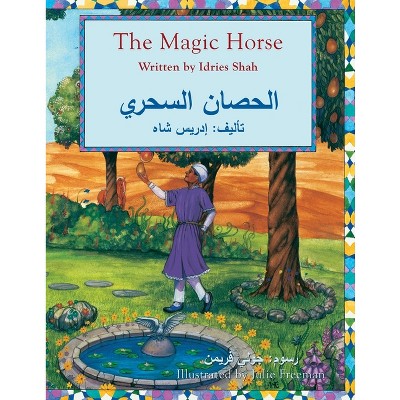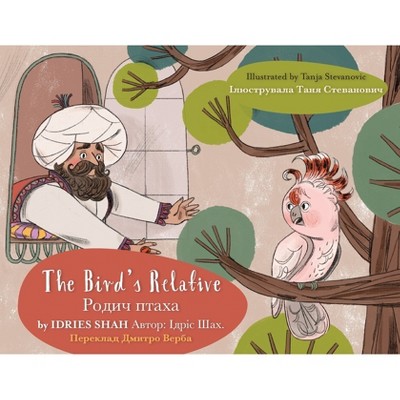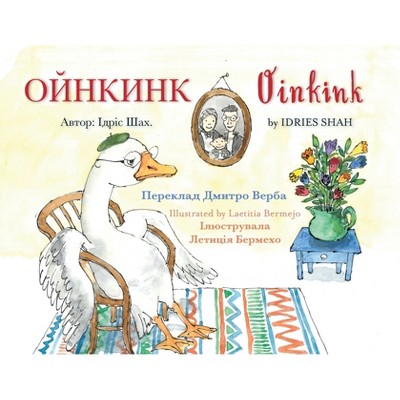Sponsored

The Lion Who Saw Himself in the Water / Kendini Suda Gören Aslan - (Teaching Stories) by Idries Shah (Paperback)
In Stock
Sponsored
About this item
Highlights
- (Bilingual English-Turkish edition) When a good-natured lion, king of all the animals, sees his reflection in a pool of water for the first time, he gasps at the fierce creature staring back at him and is too frightened to drink - until, finally, he overcomes his fear.
- 3-10 Years
- 11.0" x 8.5" Paperback
- 38 Pages
- Juvenile Fiction, Fairy Tales & Folklore
- Series Name: Teaching Stories
Description
About the Book
Mistaking his own reflection in a pool for another creature, a thirsty lion is too frightened to drink - until finally his thirst overcomes his fear. This story can help children learn how to deal positively with fears and inhibitions.
Book Synopsis
(Bilingual English-Turkish edition) When a good-natured lion, king of all the animals, sees his reflection in a pool of water for the first time, he gasps at the fierce creature staring back at him and is too frightened to drink - until, finally, he overcomes his fear. Children learn through the lion how to deal positively with the fears and inhibitions that so often arise from situations they may not yet understand. Originally told by the 13th-century Sufi poet Jalaluddin Rumi, The Lion Who Saw Himself in the Water is one of a series of teaching stories that were collected by Idries Shah and that have been used in the East for hundreds of years as educational instruments to help children understand life. Ingrid Rodriguez's beautiful illustrations bring this children's version to life with warmth, humor and a distinctive richness of detail.
(İngilizce-Türkçe İki Dilli Baskı) Aslan Başaran ve ormandaki arkadaşlarının hikâyesi, yüzyıllardır çocukları hem eğlendirip hem de eğitmektedir. Onlara, çoğunlukla henüz anlayamayacakları davranış veya olaylardan kaynaklanan mantıksız korkularının üstesinden gelmeleri için yol gösterebilir. İdris Şah'ın Doğuya ait, sözlü ve yazılı edebiyat koleksiyonları, tasavvuf öğreti hikâyesini bir eğitim aracı haline getirmeyi başarmıştır. Bu hikâyenin orijinal versiyonu 13. yüzyıl Afgan tasavvuf şairi Celaleddin Rumi tarafından anlatılmıştır.
Review Quotes
Selected by the Michigan Department of Education (U.S.) as part of its statewide R.E.A.D.Y. (Read, Educate and Develop Youth) program designed to make sure children have the necessary prereading skills (language, vocabulary, alphabet) by the time they enter school.
"Children enjoy hearing this story many times, amused at what they recognize to be the lion's lack of objectivity and his unreasonable fear. With each rereading, the lion's predicament and his reaction to it become more familiar ... [which] provides a base on which the child can come to understand egocentricity and irrationality at successive depths later in life." - Denise Nessel, Ph.D., Senior Consultant with the National Urban Alliance for Effective Education; Library Media Connection: The Professional Magazine for School Library Media Specialists (U.S.)
"This memorable tale, which is known to almost every Afghan, can teach children and adults valuable lessons about fear that unfold gradually, as one is ready for them. ... Rodriguez's illustrations are expansive, jovial, and colorful." - Multicultural Perspectives: An Official Journal of the National Association for Multicultural Education (U.S.)
"A delightful tale from an oral tradition many centuries old, illustrated with warmth, humor and the detail that children love. A thirsty lion, afraid of his own reflection in a pool of water, overcomes his fear while his jungle friends look on." - Great Lakes (U.S.) Booksellers Association
"My child has been struggling with anxious feelings at bedtime. After the school assembly [where the story The Lion Who Saw Himself in the Water had been shared], we practiced a calming breathing technique we'd learnt, and then retold The Lion Who Saw Himself in Water together. I was surprised and relieved when he went to sleep easily for the first time in ages." - Recounted by a mother in Ipswich, U.K., to Ezra Hewing, Head of Education at the mental-health charity Suffolk Mind
"These teaching stories can be experienced on many levels. A child may simply enjoy hearing them; an adult may analyze them in a more sophisticated way. Both may eventually benefit from the lessons within." - "All Things Considered," National Public Radio (U.S.)
"They [teaching stories] suggest ways of looking at difficulties that can help children solve problems calmly while, at the same time, giving them fresh perspectives on these difficulties that help them develop their cognitive abilities" - psychologist Robert Ornstein, Ph.D., in his lecture "Teaching Stories and the Brain" given at the U.S. Library of Congress
"Through repeated readings, these stories provoke fresh insight and more flexible thought in children. Beautifully illustrated." - NEA Today: The Magazine of the National Education Association (U.S.)
"Shah's versatile and multilayered tales provoke fresh insight and more flexible thought in children." - Bookbird: A Journal of International Children's Literature
"These stories ... are not moralistic fables or parables, which aim to indoctrinate, nor are they written only to amuse. Rather, they are carefully designed to show effective ways of defining and responding to common life experiences." - Denise Nessel, Ph.D., Senior Consultant with the National Urban Alliance for Effective Education (U.S.), writing in Library Media Connection: The Professional Magazine for School Library Media Specialists (U.S.)
Shipping details
Return details
Frequently bought together


Trending Books for Ages 3-5


